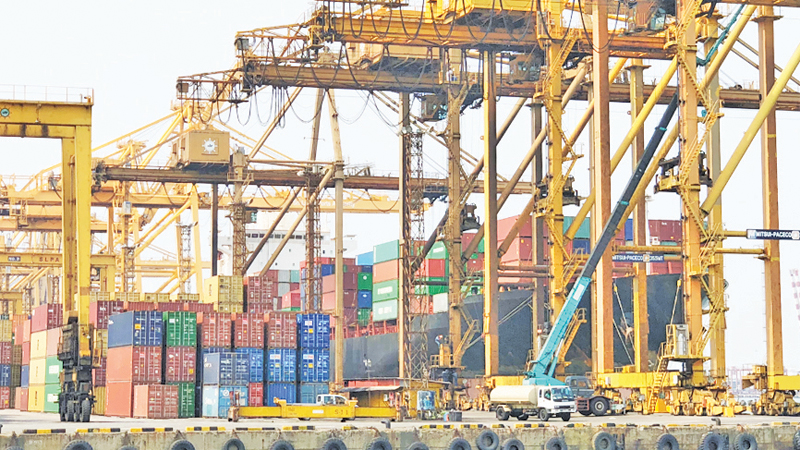At a book launch on globalisation last week, former President Ranil Wickremesinghe said, “In the past, trade agreements would take years to finalise, now the Trump administration is putting together trade deals in eight weeks – this is another sign of the huge uncertainty in global trade”. This sentiment is shared by many analysts who are observing a fundamental shift in the practice of trade policy negotiations and their implications.
Since the “Liberation Day” tariffs were announced on April 2, tariff announcements themselves are a cause for concern, as much as the proposed tariffs. The ambiguity of implementation and frequent postponement add to the uncertainty. Sri Lanka first heard of the country-specific tariff of 44% on April 2, but was followed by a 90-day pause (announced on April 9).
Yet, there was an imposition of a new universal 10% tariff. The Ttrump administration wanted to secure 90 trade deals during the 90-day tariff pause, though only two deals were actually secured by July 9.
By July 9, Sri Lanka was informed that the new rates would be 30% effective August 1. Early reports suggest that in Trump’s view, even the new deadline of August 1 might be a negotiation tactic rather than a serious tariff threat. Apart from the generic letter sent from the White House to President Anura Kumara Dissanayake, there is yet to be a formal agreement signed by both sides. This is a situation that Sri Lanka shares with many of its regional peers, such as Bangladesh and Cambodia.
‘Uncertainty’ to the forefront in trade policy
Uncertainty in trade and economic policy has material implications for economies. Expectations of future policy developments are integral to current business, investment, and policy decisions. Though the impacs of uncertainty in areas such as monetary policy have been prominent considerations for a while, the impact of trade policy uncertainty in particular is a relatively newer consideration that is increasingly relevant today.
Osnago et al. (2015) notes that such uncertainties are even being considered a distinct barrier to trade due to their wide-ranging impacts. Handley (2011) observes that trade policy uncertainty particularly affects market entry.
There are many indices that are tracking the change in economic and trade policy uncertainty using sentiments shared in newspapers. The Trade Policy Uncertainty (TPU) index by Caldara et al. is one such example that can be used to assess changes in uncertainty. Following the ‘liberation day’ tariff announcement, the index spiked to the highest level recorded since its index’s inception in January 1960. The continually shifting tariff rates and deadline dates announced by the Trump Administration are causing high uncertainty.
The very basis for the tariffs is also becoming ambiguous and inconsistent. In some instances, Trump is going beyond “trade deficit” considerations to issues that have nothing to do with trade. This was exemplified by Trump’s recent threats to Brazil that higher tariffs would be imposed if the trial of former President Bolsonaro is not suspended. This adds a new dimension of uncertainty for countries. According to early econometric estimations by Sampognaro (2025), an increase in trade policy uncertainty has a significant medium-term impact on the volume of trade and global supply chains.
How trade policy uncertainty can affect businesses
Trade policy uncertainty has real impacts on firms, ranging from rising costs, constrained financing, and postponed innovation. Such uncertainties increase an already complex global trade environment, which has seen increased fragmentation in the recent past. Informal interviews with exporters indicate that considerable time and resources are allocated to managing issues arising from trade policy uncertainty, with attention diverted to finding temporary solutions rather than planning for longer-term competitiveness.
CSF has set out to add some initial insights on how trade policy uncertainty is affecting export firms through an executive opinion-based survey shared through trade association networks. In the survey, we aim to uncover how Sri Lankan exporters are responding to the elevated trade policy uncertainty since April 2. The survey focuses on both short and medium-term considerations such as impacts on buying patterns, cost-bearing strategies, investment decisions and business confidence.
It is clear that trade policy uncertainty is rising globally. This will be a fact of the operating environment for Sri Lankan exporters in the near term. It is now more important for Sri Lanka to firmly conclude a trade deal with the US and reduce further uncertainty, to the best extent possible.
Meanwhile, the insights of the ongoing CSF survey can help inform Sri Lankan exporters, trade chambers, and the government understand the dimensions of impacts better, and inform public-private dialogue on developing responses to this evolving issue.
Anushka Wijesinha is Co-founder/Director, and Senith Abeyayake is Research Associate at Centre for a Smart Future (CSF). If you are a senior leader in an export-oriented firm, take part in the survey at csf-asia.org/trade-uncertainty-survey.








